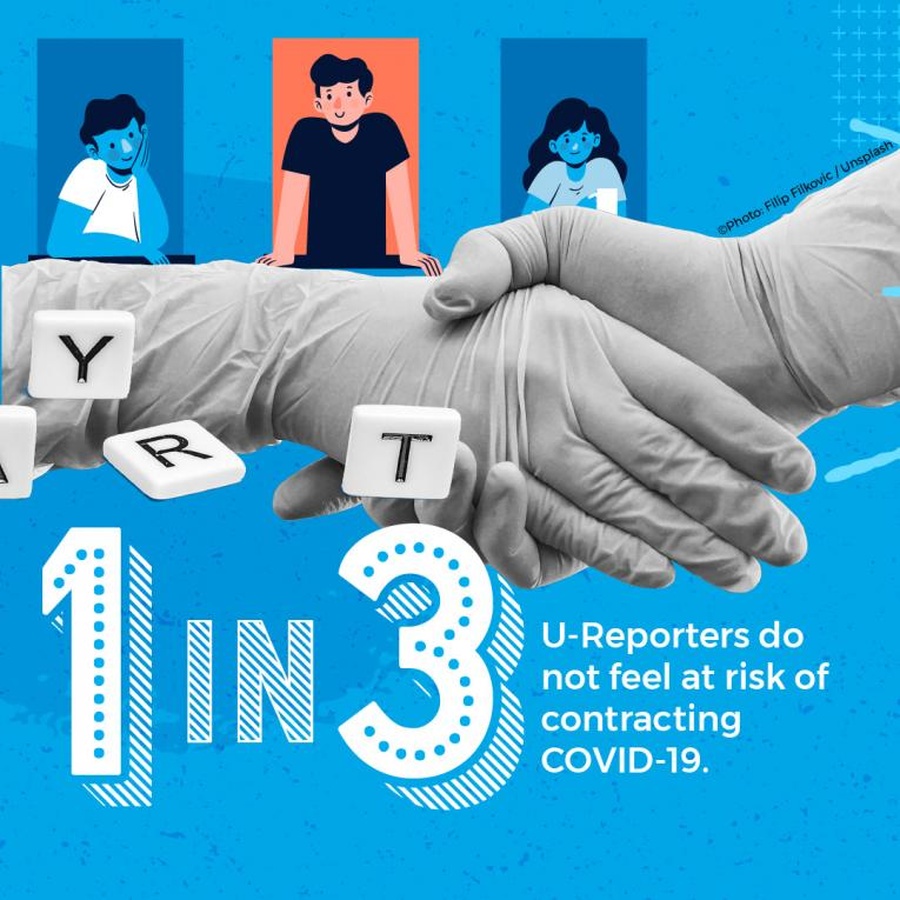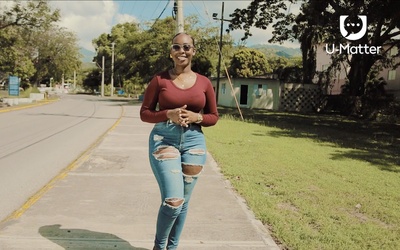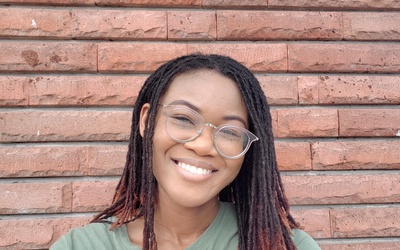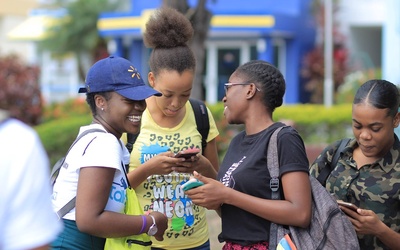Kingston, 25 June 2020 – A recent UNICEF poll among youth aged 13-29 in Jamaica shows that one third of the respondents believe they are not at personal risk of contracting COVID-19.
The Jamaican responses were consistent with the overall findings of wider polling across the Latin America and Caribbean region, in which a total of 10,500 young people participated.
Less than half of Jamaican youth – 39% of 846 respondents – chose all correct answers when asked how COVID-19 is transmitted. They did, however, demonstrate greater knowledge than one-third regionally who chose all correct answers.
10,500 youth polled regionally
Administered through U-Report, a free and confidential youth mobile messaging platform from UNICEF, the poll highlights the knowledge, thoughts and feelings of young people around the COVID-19 pandemic.
Ninety-three per cent of Jamaican respondents agreed that it was “very dangerous” for COVID-19 to spread to the rest of the population. This perception was consistent across the region.
The poll results also show that Jamaican youth are mostly aware about where to find key information. Fifty-four per cent of Jamaican respondents reported that they knew of the official national COVID-19 website.
“We have to ensure that the youth population remain engaged in our overall health response to COVID-19,” said UNICEF Jamaica Health Specialist Novia Condell. “This is critical since more than half of Jamaica’s cases have been among those aged 29 years old and younger.”
“Teens right now are sincerely concerned about making a positive difference in the world. This pandemic is an opportunity for them to be forward-thinking, consider their loved ones and unitedly feel empowered to practice social distancing for the greater social good,” said an 18-year-old male U-Reporter responding to the poll.
Among Jamaican U-Reporters, 52% cited social networks such as Instagram and TikTok as their main source of information, compared to 26% for traditional media. Jamaican youth seem to be more digital-centric compared to results from the region who replied 40% traditional media and 21% social media.
Jamaican youth more digital
Together with other United Nations agencies, non-governmental organizations and the private sector, UNICEF has been supporting government efforts in all countries across Latin America and the Caribbean to engage with younger audiences through a combination of digital and offline platforms used by young people.
UNICEF is calling on traditional media, social media platforms and mobile operators to intensify their cooperation and efforts to promote life-saving practices about COVID-19 and curb misinformation among youth in Latin America and the Caribbean.
* * *
Note to the editor:
Worldwide, since the pandemic was declared, U-Report has evolved into a vital platform in the fight against the virus, sharing scientific facts and polling youth using various popular messaging applications, which in Jamaica include SMS, WhatsApp and Facebook Messenger.
As a result, U-Reporter numbers have surged to over 10.5 million globally, with new and existing users across 68 countries including refugees, migrants and other vulnerable groups. U-Report was launched in Jamaica in May 2018 and currently has 10,700 U-Reporters.
Young people can join U-Report and also receive facts about COVID-19 using a dedicated messaging bot created by UNICEF, the World Health Organisation (WHO) and the Red Cross.
How to access:
On WhatsApp: Send the word CORONAVIRUS to 876 838 5897 https://wa.me/18768384897?text=coronavirus
On Facebook Messenger: Send the word CORONAVIRUS’ using Facebook Messenger at http://m.me/UReportJamaica
U-Report partners with governments, non-governmental organisations, business, schools, universities and youth networks to aid children, young people and vulnerable communities.








